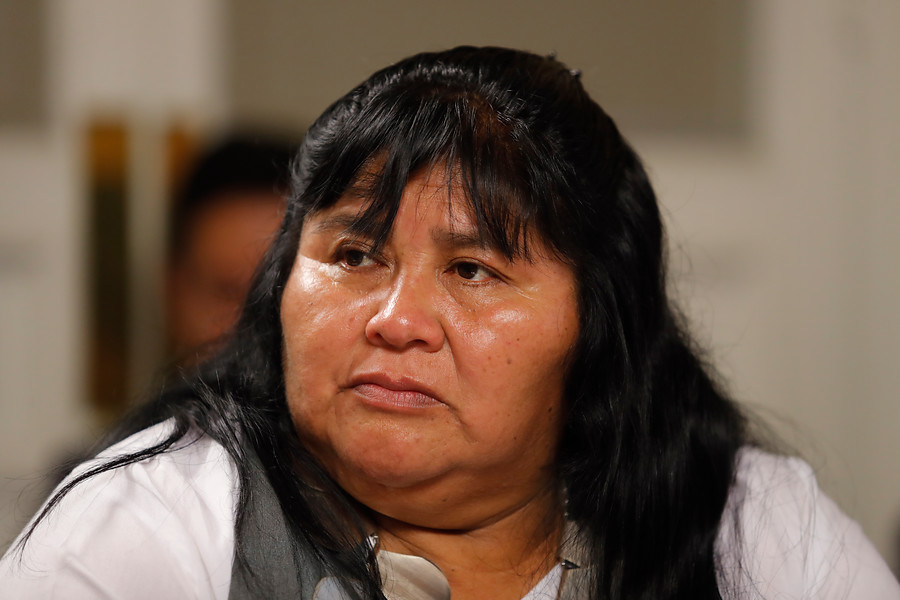By Marcelo González
RIO DE JANEIRO, BRAZIL – It is a matter of great concern and that is why it has been gaining ground: the possibility that, mainly due to external factors, Chile will suffer a food crisis.
And it is enhanced by a UN report that indicated that in Chile 3.4 million people (18% of the population) were exposed between 2108 and 2020 to “severe or moderate food insecurity”, that is, they had difficulties to access healthy and nutritious food.
Read also: Check out our coverage on Chile
The study added that 600,000 Chilean men and women suffered from undernourishment, that is, hunger, constantly between 2020 and 2021, the hardest period of the covid-19 pandemic.

The global health crisis due to the coronavirus, the serious problems in the logistics chains (due to closures in China due to covid-19), the war that is going on for four months between Russia and Ukraine (two large grain producers and also oil) and the rise in the value of seeds and fertilizers are facts that have raised the price of food throughout the planet.
That is why both the Organization for Economic Cooperation and Development, OECD, and the United Nations Food Organization, FAO, raised warnings, which reached the Ministry of Finance and were transmitted to national parliamentarians.
And who was Minister of Agriculture in the second term of President Sebastián Piñera, Antonio Walker, pointed out that “the world’s food security is going to be affected, that’s why we are already seeing the high prices of “commodities”. In Chile we have to face this very seriously, and it would be positive to create an Interministerial Committee to see how to deal with the issue”.
In similar terms, another former Minister of Agriculture, Carlos Furche, who held the position in the second term of President Michelle Bachelet, expressed himself.
“The international food crisis is beginning to worry our country. To the sustained rise in the prices of basic foodstuffs, concern has been added about the future supply of essential goods, such as wheat, sugar and oilseeds.
GROUNDING THE PROBLEM
But the economist and dean of the Faculty of Administration and Business of the Autonomous University, Rodrigo Montero Pérez, puts on a calm tone, although he acknowledges that there are drawbacks.
“We are not in a food crisis. What there is is a problem of access, because prices increase and it becomes more difficult to bring them. Chile is an open and small market, which makes it susceptible to any international ups and downs. Since we import half of the wheat, 70% of the corn, a lot of beef, and also large amounts of milk and legumes, we are in trouble. And if the conflict in Ukraine continues, the price of food will continue to rise, so that some of it will be inaccessible to certain vulnerable groups, for whom it is wise to support them with bonds that help them partially cover the purchasing power lost to buy food”.
The academic added that “we must analyze what we can do to improve our agricultural productivity. This situation is a warning note to start applying more technology and innovation”.
According to Rodrigo Montero Pérez, “it is also vital that normality returns to the Araucanía Region, which is a true national breadbasket. That is a very important agricultural area, and that is why this is the worst time for us to have problems there”.
CREATE SPECIAL COMMISSION
The Minister of Agriculture, Esteban Valenzuela, declared yesterday morning on Radio ADN that “it is difficult for Chile to be exposed to a food crisis, because it is one of the countries with the most diversity in relation to the peasant reality”.
“We are an agro-industrial power in the southern hemisphere, and one of the three countries that exports the most to the northern hemisphere. And we have no less agricultural diversification. That is why there has been no shortage of food at free fairs or in wholesale markets or supermarkets,” added the Secretary of State.
Already in the afternoon, and from the Palacio de La Moneda, the Minister of Agriculture announced the birth of the National Commission for Food Security and Sovereignty, a public-private body that includes institutional actors from the country’s agri-food chain.
The task of this working group -in which eight ministries participate- is to define the design of what has been called the “National Plan for Food Security and Sovereignty”.
“Chile has been dodging the rise in world prices and other current world food problems in an acceptable way,” explained Esteban Valenzuela.
The Commission will propose short-term measures and also a robust andconsensus on the subject by the end of 2022, which President Gabriel Boric should present to the country in mid-January 2023.

A LOOK FROM THE PARLIAMENT
Socialist deputy Emilia Nuyado, representative of District 25 and who is a member of the Agriculture, Forestry and Rural Development Commission, pointed out that “small producers agree that they have been lacking resources for 30 years, which adds to the water crisis caused mainly by forestry companies. And this is not the fault of the Mapuche claim as some say”.
According to the parliamentarian, this group “is affected by the rise in the price of seeds and fertilizers, and also by the lack of water. In addition, it is very sad to see that they depend on the large farmers to sow and harvest, since they have to wait for the former to occupy the machinery, which the minors do not have, and then work”.
Regarding what should be done, the deputy maintained that “for the next 30 years, the Government must urgently take measures that support farmers and thus advance food security and sovereignty. It is necessary to have an important budget so that there is, for example, technical irrigation. So what happens outside will affect us less. If this is not done, the powerful and those who speculate on food prices will continue to win”.

